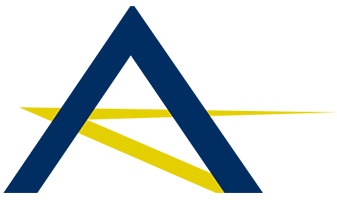It should come as no surprise to the millions of New Yorkers who regularly visit these establishments, that the State of New York has issued rules and regulations with respect to the safe operation of nail, beauty and hair salons. However, according to the New York State Department of Health, more than half of all consumers who frequent these business establishments are under the mistaken impression that health and safety are not serious considerations when getting their nails done, or when getting a waxing, a facial, a body wrap, or most other beauty treatments.
When not performed by properly licensed and trained technicians, the transmission of disease such as bacterial infections can result along with other, even more serious, physical injuries.
Selecting a Salon
To legally operate a salon in New York State, the establishment must be licensed. In choosing a salon, therefore, consumers should look for a license on the wall, which according to state regulations must be displayed at the entrance to the salon, or in some other conspicuous location in the salon. Photographs for each technician also must be displayed along with the license. If you can’t see the license, ask the salon owner, or manager, to show it to you. If the establishment can’t produce a current New York State issued operators license, you should go elsewhere for the services.
Can any operator perform any service I need?
Not all practitioners require a license to perform all services and the regulations covering operator service licensing are a bit arcane. For example, NYS licensed cosmetologists can legally perform hair, nail, skin and waxing services. Estheticians, on the other hand, can perform all services except hair and nail services. And, for reasons unknown, nail, waxing and “natural” hair styling specialists can only perform those specific services for which they are licensed. Nail specialists, again for reasons that are not entirely clear, cannot perform waxing services.
However, there are certain safety procedures that all establishments and practitioners are expected to follow. (The following is excerpted directly from NYS Department of State Licensing Division documents):
The facility where any service is being offered should be clean, in good repair and free from dangerous conditions or hazards.
- Sufficient space with good lighting should be provided to ensure the safety and health of the consumer.
- Hot and cold running water, toilet facilities and covered containers for paper and waste should be provided.
- The provider is required to follow infection control procedures that protect the provider and the customer.
- Hand washing is required of all nail care clients and providers prior to a nail service being performed.
- Tables and beds used for personal services should be sanitized/cleaned between each customer.
- All implements that may abrade or clip superficial skin should be immersed in an EPA-approved disinfectant for at least 10 minutes and disinfected after each use.
- Porous manicuring and waxing implements such as emery boards, block buffers and waxing sticks and other implements that cannot be disinfected should not be used for more than one person.
- Operators performing waxing or hair extractions should wear gloves.
- Disposable supplies such as cotton, sponge applicators and paper products should never be used for more than one person.
- Disposable towels and paper table coverings should only be used for one customer and a fresh replacement should be provided for the next customer.
- Other tools used to provide services should be cleaned, then disinfected after each customer, using an EPA-approved disinfectant. These tools include but are not limited to scissors, razors, clippers, combs, brushes, capes and bowls.
- The use of chamois, buffers, pumice stones, credo blades, styptic pencils and bar soap is prohibited.
- The use of non-disposable powder puffs, sponges or neck dusters, which cannot be immersed in an EPA-approved hospital grade disinfectant, is prohibited.
- Other items that can be used for only one application and disposed of include emery boards, nail white pencils (unless sharpened after each use), shaving mugs without the use of sanitary paper or plastic liners and razors.
- Finger bowls, pedicure bowls and footbaths must be cleaned, rinsed and disinfected after each use.
- All sharp or pointed items should be stored when not in use.
- All fluids, creams and powders must be dispensed with shakers, dispenser pumps, spatulas or sprays to prevent contamination.
Complaints
Anyone who believes he or she is a victim of an untrustworthy or incompetent nail, beauty, or hair salon should contact of the NY Department of State @ (212)417-5747. Or you can access the Department’s website at www.dos.ny.gov and complete a licensee complaint form.
In situations where injuries or infections are serious, the customer should investigate filing a lawsuit against the hair salon by contacting a top New York hair and nail salon injury lawyer.


